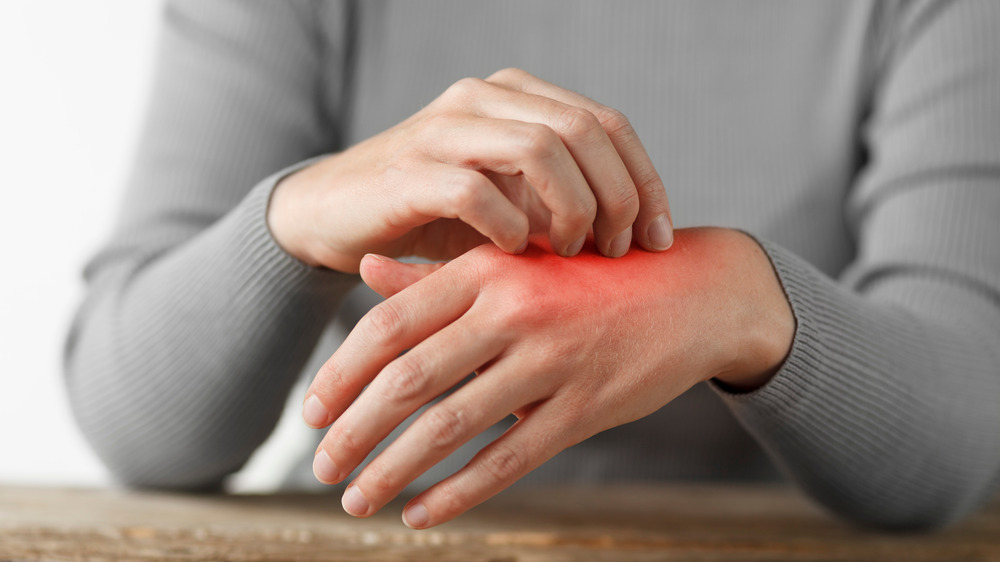This Is What Happens When You Wear A Hair Tie Around Your Wrist
Wearing an elastic hair tie around your wrist is an easy and convenient way to guarantee that you always have one nearby. However, you shouldn't leave it on for too long, especially if it's tight. While it is perfectly safe to keep loose hair ties, ribbon ties, and scrunchies around your wrist, wearing a tight hair tie for an extended period of time can potentially cut off your circulation or cause an infection (via Well+Good). This is because tight, elastic hair ties can dig into your wrist and restrict blood flow to your hand and fingers.
"If you have numbness or tingling in your hand, or it becomes cold and pale, your hair tie on your wrist is probably too tight," Dr. Suzanne Steinbaum, a volunteer medical expert for the American Heart Association's Go Red for Women movement and the director of women's cardiovascular prevention, health, and wellness at Mount Sinai, told Well+Good. Another tell-tale sign that your hair tie may be too tight is if it leaves behind a temporary indentation on your skin. If any of this happens, you should remove your hair tie immediately.
Tight hair ties may irritate your skin
In addition to cutting off blood flow, tight hair ties can irritate the skin around your wrist and potentially cause an infection. For some people, the rubber and dyes in the hair tie can trigger an allergic reaction, which may result in a flaky rash and residual hyperpigmentation, or patches of darker skin, around the wrist area (via HuffPost).
Tight hair ties can also cause cuts and abrasions in the skin. Hair ties are often full of bacteria from moisture and sweat, so any open wounds near the elastic band run the risk of becoming infected. While bacterial infections from hair ties are relatively rare, they're not impossible. That's why it's important to take preventative measures. Wearing loose hair ties or not wearing anything around your wrist at all can minimize your risk of developing a rash or infection. For most people, wearing a hair tie will not cause any health problems, but it's helpful to know what to look out for and when to be concerned.


